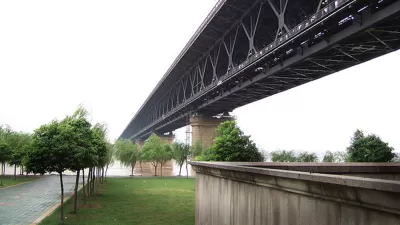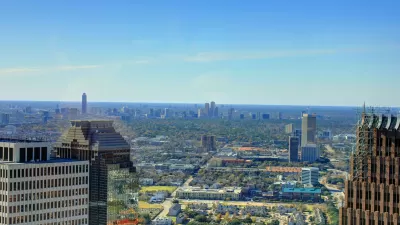Existing grey infrastructure in China cannot cope with rapid urban expansion and frequent droughts and floods. Several cities, with Beijing's approval, are experimenting with rainwater capture methods as an alternative.

Chinese planners and engineers are hard pressed to keep up with demands for working infrastructure. "Experts say that climate change has played a role in the increase of urban flooding, producing more rainfall during shorter periods. Besides that, rapid urbanization has outpaced stormwater removal."
The widespread adoption of rainwater capture techniques may alleviate drought as well as flooding. Enter the so-called 'sponge city.' "The new design aims to build up infrastructure to collect excess rainfall and integrate flood control in urban planning [...] When rain falls lightly, the water either filters down to the underground through permeable pavements or is soaked up by gardens designed to catch rain. Almost no rainwater flows into street gutters [...]"
President Xi Jinping has been quick to back the idea. "Earlier this year, the Chinese central government pledged to provide billions of dollars in financial assistance over the next three years, in an effort to help 16 cities morph into urban sponges."
Although installing rainwater capture infrastructure can be disruptive on the ground, residents reportedly approved of some initial measures when they successfully prevented flooding in their neighborhoods.
FULL STORY: China bets on 'sponge cities' to cope with flooding and drought

Planetizen Federal Action Tracker
A weekly monitor of how Trump’s orders and actions are impacting planners and planning in America.

Maui's Vacation Rental Debate Turns Ugly
Verbal attacks, misinformation campaigns and fistfights plague a high-stakes debate to convert thousands of vacation rentals into long-term housing.

San Francisco Suspends Traffic Calming Amidst Record Deaths
Citing “a challenging fiscal landscape,” the city will cease the program on the heels of 42 traffic deaths, including 24 pedestrians.

Amtrak Rolls Out New Orleans to Alabama “Mardi Gras” Train
The new service will operate morning and evening departures between Mobile and New Orleans.

The Subversive Car-Free Guide to Trump's Great American Road Trip
Car-free ways to access Chicagoland’s best tourist attractions.

San Antonio and Austin are Fusing Into one Massive Megaregion
The region spanning the two central Texas cities is growing fast, posing challenges for local infrastructure and water supplies.
Urban Design for Planners 1: Software Tools
This six-course series explores essential urban design concepts using open source software and equips planners with the tools they need to participate fully in the urban design process.
Planning for Universal Design
Learn the tools for implementing Universal Design in planning regulations.
Heyer Gruel & Associates PA
JM Goldson LLC
Custer County Colorado
City of Camden Redevelopment Agency
City of Astoria
Transportation Research & Education Center (TREC) at Portland State University
Jefferson Parish Government
Camden Redevelopment Agency
City of Claremont





























